Your cart is currently empty!
Here’s What You Need To Know: Starting solids can feel more scary than exciting. Especially for new parents who are worried about overfeeding. But feeding your baby solids marks the exciting beginning of a very healthy and balanced relationship with food. The importance and timing here should be underscored. The earlier you expose your baby…
Here’s What You Need To Know:
- Do not feed a baby salt or sugar. They can lead to decreased immunity, kidney, and teeth damage.
- Don’t encourage a clean plate policy.
- As your baby approaches turning one, expect a smaller appetite.
- Don’t use food as a reward or to appease an upset child who isn’t truly hungry.
- You will start to recognize your baby’s signs that they are full and respond accordingly.
Starting solids can feel more scary than exciting. Especially for new parents who are worried about overfeeding. But feeding your baby solids marks the exciting beginning of a very healthy and balanced relationship with food. The importance and timing here should be underscored. The earlier you expose your baby to whole foods, the healthier they will eat – for life! And that includes following their fullness cues.
By following the guidelines below, you can avoid overfeeding your baby, and help them discover their unique needs, limits, and favorites when it comes to organic baby food.
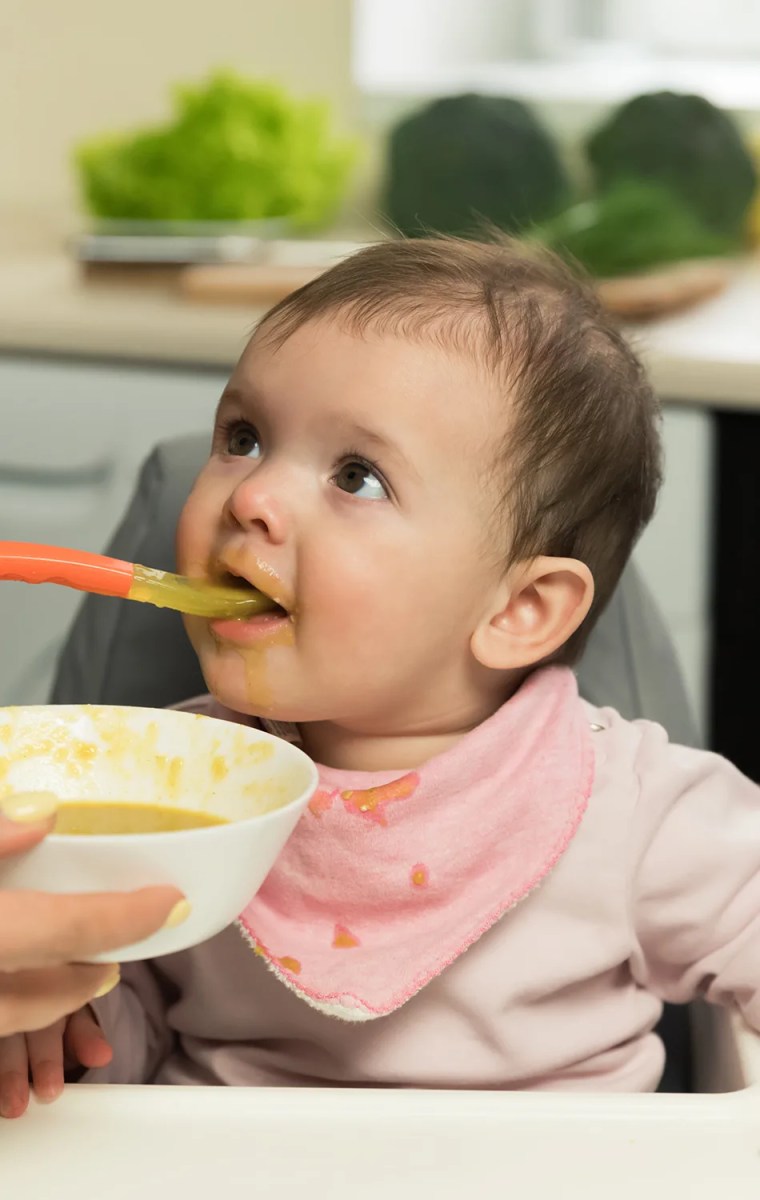
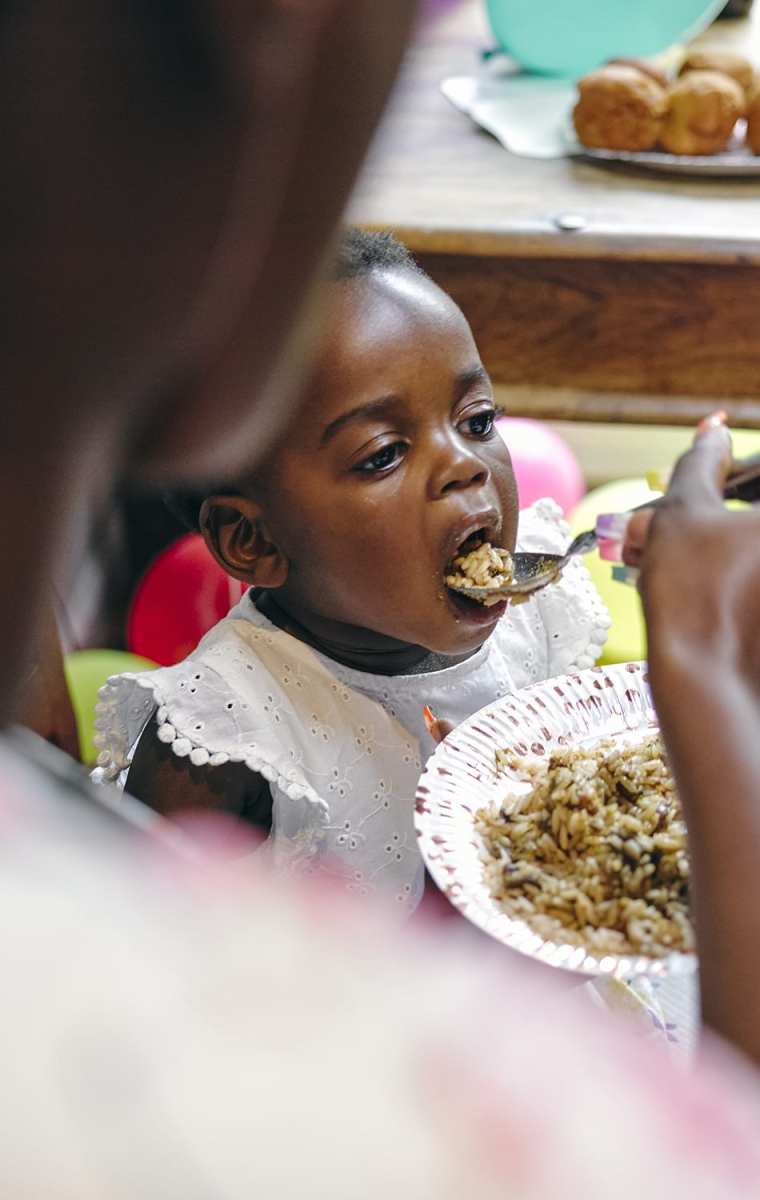
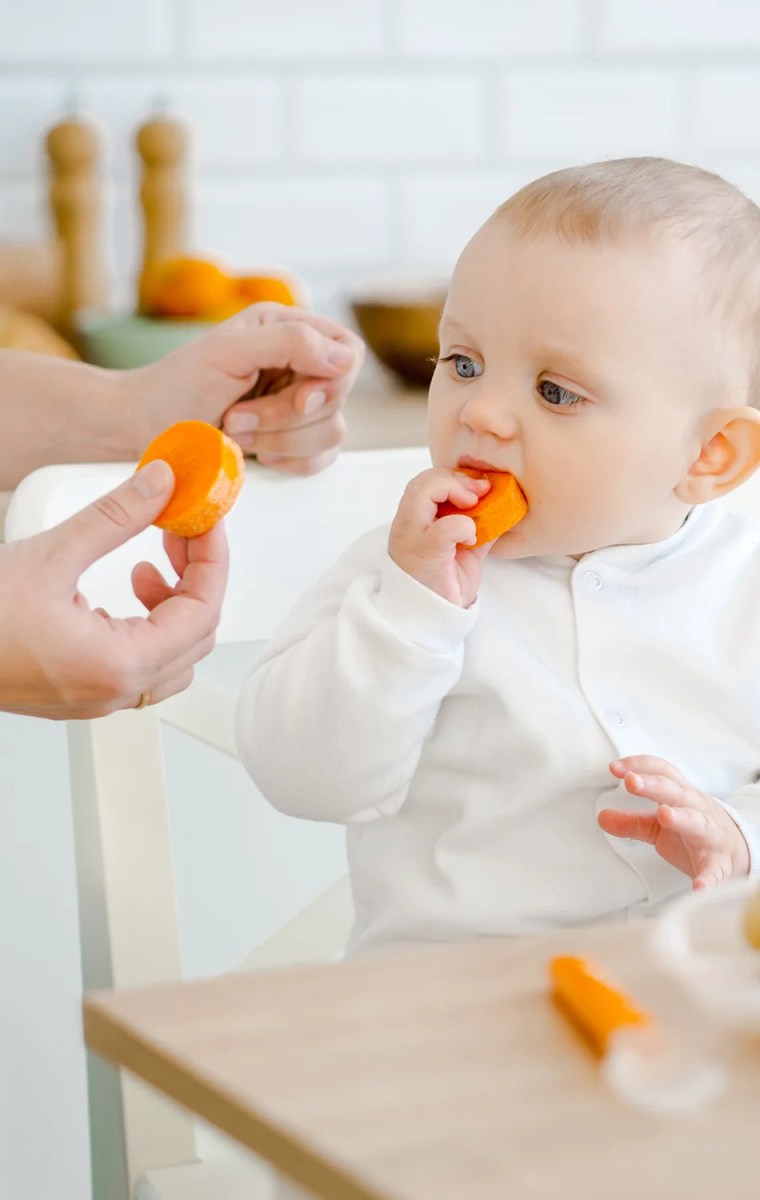
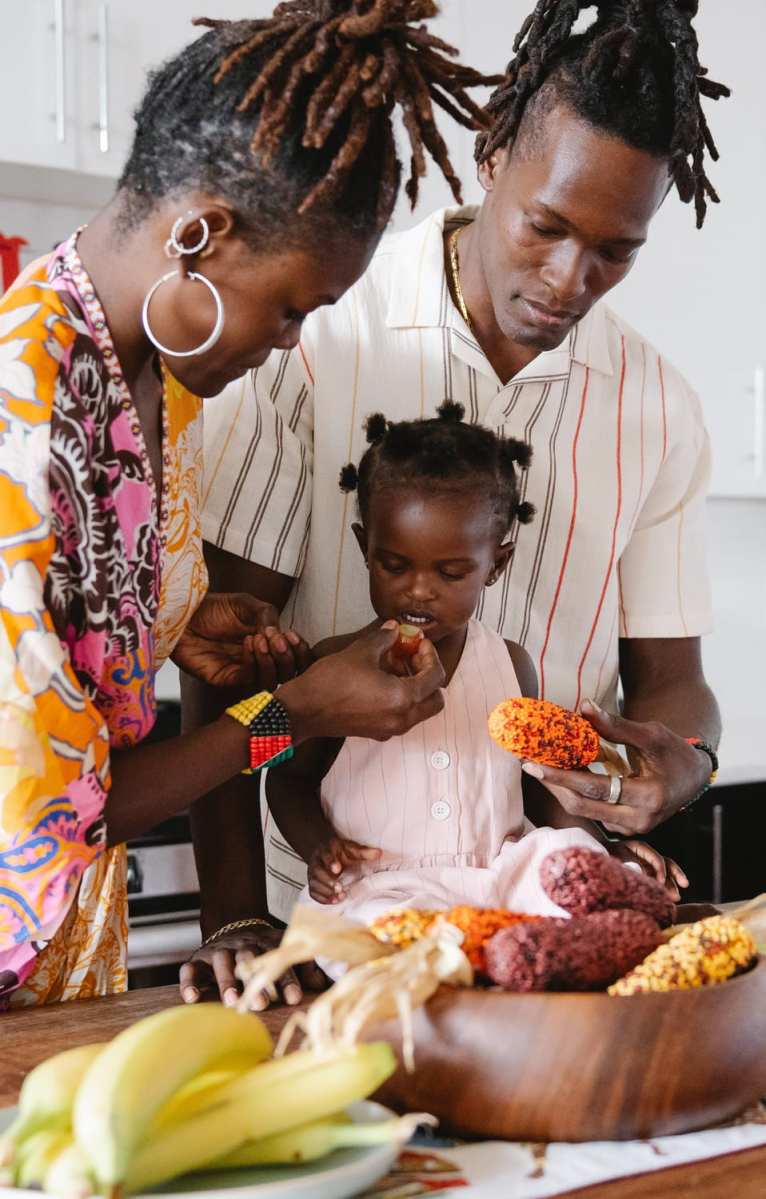
No Salt or Sugar
When starting on organic baby foods, stick to whole foods or natural seasoning with herbs and spices. Organic foods with added salt and sugar may alter their food preferences and encourage your baby to eat more than they need. Avoiding salt and sugar will help with overfeeding fears.
Additionally, salting food can lead to a lifetime of over-salting foods. Adding sugar has the same effect. (Hello, sweet tooth.) Unfortunately, there has been a boom in high sugar and high salt foods in the baby food industry. Some of this is a reaction to parents needing “on-the-go” foods – but salt and sugar can lead to decreased immunity, and salting a baby’s food could be harmful to immature kidneys, which are ill-prepared to process added salt. Yumi has no added sugar and no added salt.
Babies Don’t Need to Clean Their Plates
Don’t encourage a clean plate policy. When your baby gives signals they are satisfied, save any leftovers for their next meal. Don’t urge them to finish what is left in the jar. These signals include: pushing their food or plate away, turning their head, starting to play or looking disinterested in feeding, and spitting the food out. Don’t worry, you will start to recognize your baby’s signs that they are full and respond accordingly.
Expect Your Baby’s Appetite to Fluctuate
As your baby approaches turning one, expect a smaller appetite. Their growth rate naturally slows down around this time and they don’t need as much food.
As your baby approaches turning one, expect a smaller appetite. Their growth rate naturally slows down around this time and they don’t need as much food.
Don’t use food as a reward or to appease an upset child who isn’t truly hungry. Feed your baby at typical meal and snack times or when they show signs of hunger. This will stop them from developing negetive food habits.
Other Tips and Tricks for Mealtime Success
Timing Matters: The best time to introduce solids is one hour before formula or breastfeeding.
Embrace Your Role As An Actor: Your baby mimics your reaction to certain foods. While it might seem silly – smiling, nodding, or making “mmm” sounds helps your baby embrace new flavors.
No Bland Food For Baby: It’s a myth that babies should eat bland food. Don’t be afraid of spices and herbs. You’ll find spirulina, turmeric, ginger, and more in our blends!
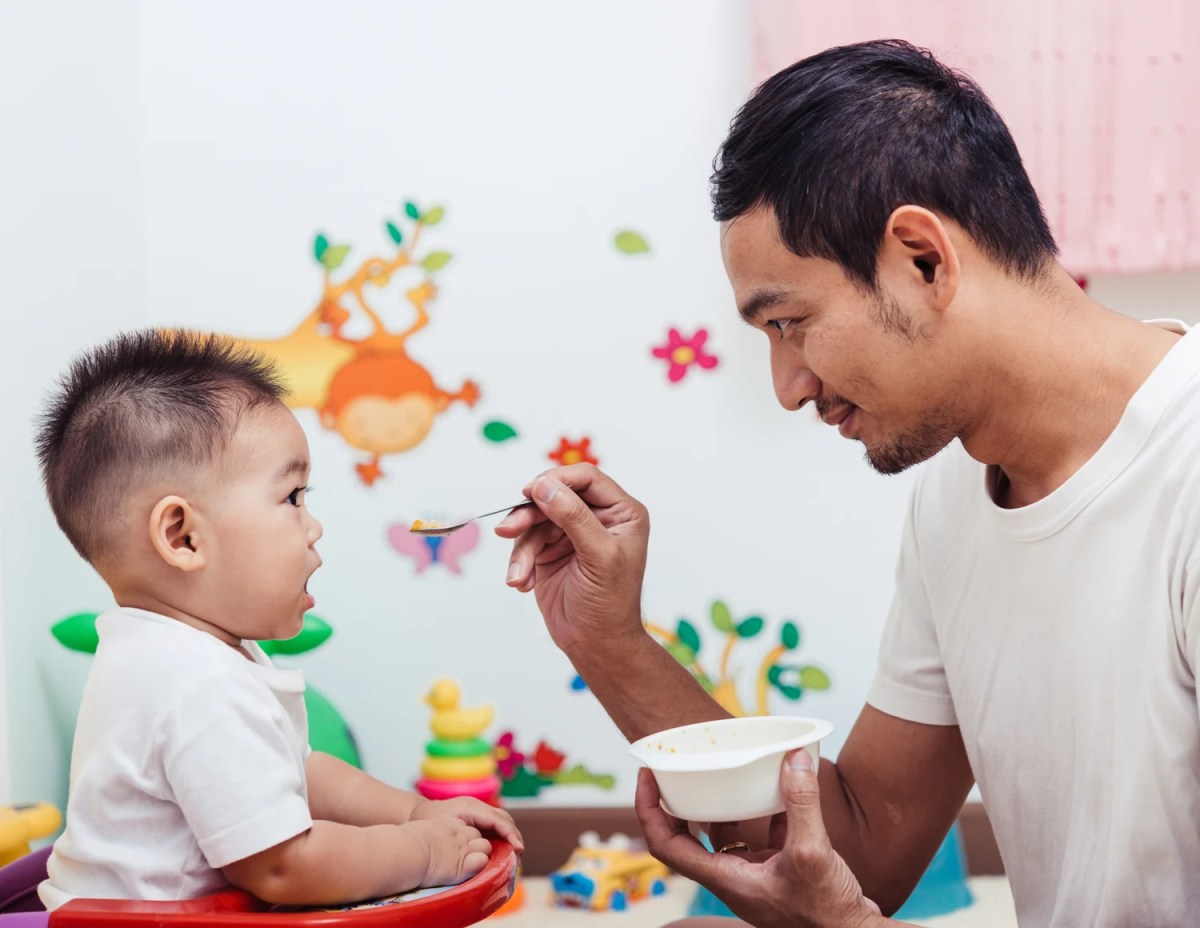
Summary
Overfeeding a baby is rare, but it can happen. Just make sure to pay attention to your little one’s fullness cues. If you’re concerned that you may be overfeeding your little one, talk to your pediatrician.
As long as your baby seems happy and healthy, you are probably doing just fine.











